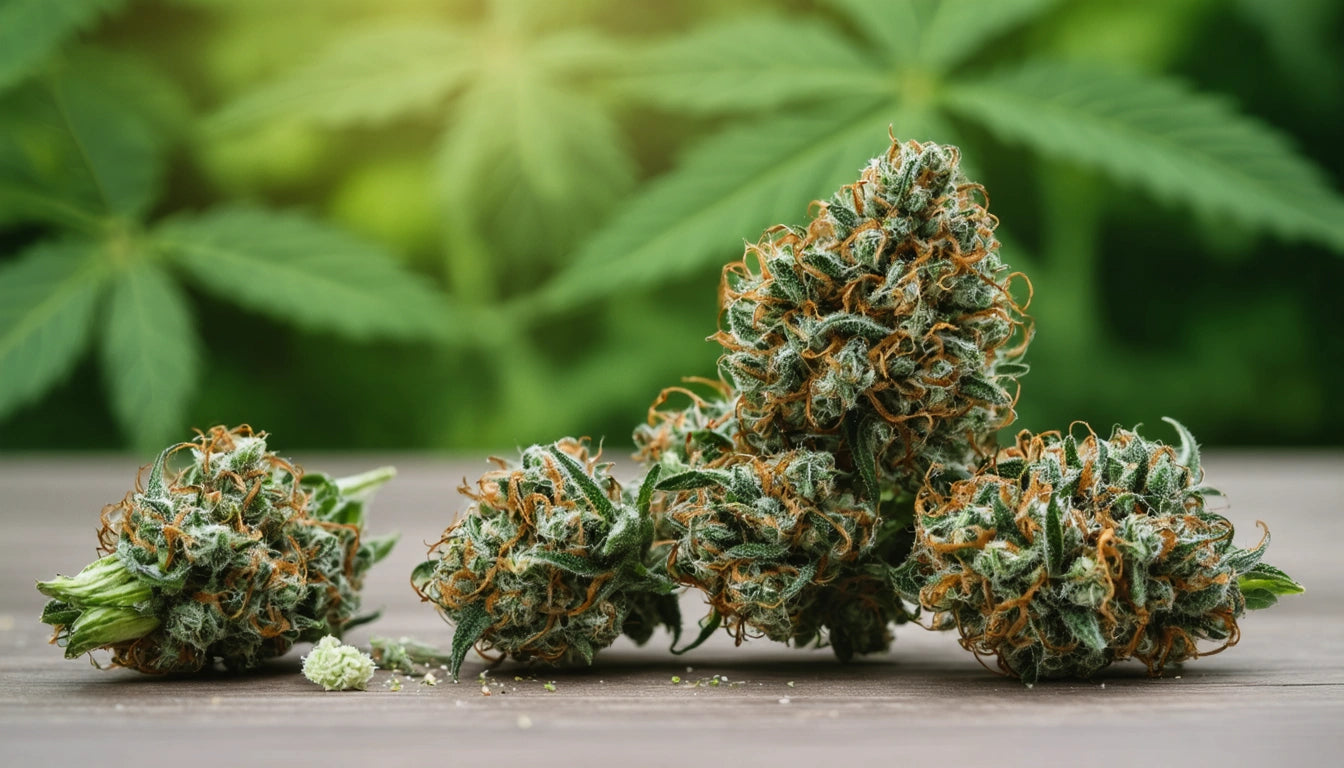How Marijuana Use Impacts Testosterone and Hormone Levels
The relationship between cannabis use and hormone regulation has become a significant area of interest for researchers and users alike. As marijuana legalization expands, understanding how weed affects testosterone levels and other hormones becomes increasingly important for making informed health decisions.
Understanding Cannabis and Hormonal Systems
Cannabis interacts with the endocannabinoid system (ECS), which plays a crucial role in regulating various physiological processes, including hormone production. The ECS has receptors throughout the body, including in the hypothalamus and pituitary gland, which control the release of hormones like testosterone.
When cannabinoids from marijuana enter the body, they bind to these receptors, potentially influencing the hypothalamic-pituitary-gonadal axis responsible for testosterone production. This interaction forms the biological basis for how cannabis might affect hormone levels.
Research on Marijuana and Testosterone Production
Current research presents mixed findings on whether does weed decrease testosterone levels. Several studies suggest that regular, heavy cannabis use may temporarily lower testosterone concentrations in men, while others show minimal or inconsistent effects.
A meta-analysis published in the Journal of Clinical Pharmacology found that chronic marijuana users showed moderately lower testosterone levels compared to non-users. However, these effects appeared to be dose-dependent and potentially reversible with cessation.
Short-term vs. Long-term Effects
Research indicates different outcomes based on usage patterns:
- Short-term use: May cause temporary fluctuations in testosterone levels
- Long-term, heavy use: More likely to show sustained reductions in testosterone
- Occasional use: Minimal documented hormonal impact
When examining whether smoking weed affects testosterone production, the method of consumption also matters. Smoking introduces additional variables compared to other consumption methods, as combustion creates compounds that may independently affect hormone regulation.
THC vs CBD: Different Effects on Male Hormones
The two primary cannabinoids in marijuana, THC and CBD, appear to affect hormone levels differently:
THC (tetrahydrocannabinol) has been associated with potential testosterone suppression in some studies. It may temporarily inhibit the release of GnRH (gonadotropin-releasing hormone), which subsequently affects testosterone production.
CBD (cannabidiol), conversely, shows different effects. Some research suggests CBD might actually help regulate hormone production by reducing stress and inflammation, factors that can negatively impact testosterone levels. As noted in research on CBD's effects on male hormones, this non-psychoactive cannabinoid may have less disruptive effects on the endocrine system.
When considering product safety, proper storage becomes essential. Using high-quality container systems with secure caps helps maintain cannabinoid potency and prevents degradation that could alter their effects on the body.
Frequency of Use and Hormonal Impact
The question of whether does weed affect hormones broadly depends significantly on usage patterns:
Occasional Use
Infrequent cannabis consumers typically show transient hormonal changes that return to baseline relatively quickly. These temporary fluctuations rarely translate to clinical symptoms or long-term endocrine disruption.
Regular Use
Daily or near-daily cannabis users may experience more sustained alterations in hormone profiles. Some studies suggest regular users might have:
- Moderately lower baseline testosterone levels
- Altered luteinizing hormone patterns
- Changes in prolactin levels
- Potential impacts on cortisol regulation
These effects appear more pronounced in heavy users and may contribute to symptoms like reduced libido, as explored in research on how cannabis affects sexual experience.
Cannabis, Testosterone, and Related Health Factors
The relationship between marijuana and testosterone doesn't exist in isolation. Several related health factors are worth considering:
Fertility Considerations
Research examining how cannabis affects sperm count suggests potential impacts beyond just testosterone levels. THC may affect sperm morphology, motility, and concentration, which are influenced by but not exclusively determined by testosterone levels.
Body Composition Effects
Testosterone plays a key role in muscle development and fat distribution. Some cannabis users report changes in body composition with long-term use, which may partially relate to hormonal shifts. However, lifestyle factors among users (such as altered eating patterns or exercise habits) make it difficult to isolate cannabis as the sole cause.
For those concerned about whether does weed reduce testosterone enough to impact physical development, current evidence suggests moderate use is unlikely to cause significant changes in healthy adults.
Hormonal Recovery After Quitting Marijuana
A common question is whether does quitting weed affect hormones positively. Research suggests that endocrine function typically normalizes after cessation of cannabis use, though the timeline varies:
- Casual users: Hormone levels often return to baseline within days to weeks
- Heavy, long-term users: May require several months for complete normalization
- Adolescent users: May experience different recovery patterns due to developmental factors
For those concerned about whether cannabis has affected their hormone levels, abstinence appears to be an effective approach to restoration in most cases. Some users report improved energy, libido, and mood after quitting, which may partially reflect hormonal rebalancing.
Understanding the complex relationship between marijuana and testosterone continues to evolve as research methodologies improve and larger studies emerge. For individuals concerned about hormonal health, consulting healthcare providers about cannabis use and considering moderation remain prudent approaches.











Leave a comment
All comments are moderated before being published.
This site is protected by hCaptcha and the hCaptcha Privacy Policy and Terms of Service apply.